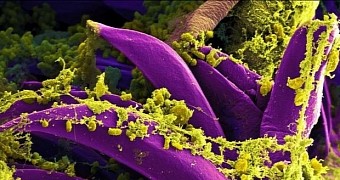This past Thursday, public health officials in Oregon confirmed a case of bubonic plague in a 16-year-old girl in Crook County. The girl was admitted to a hospital in the city of Bend late last week, on October 24, and is now in intensive care.
The teenager, whose identity has not yet been revealed, is believed to have contracted the potentially lethal infection while on a hunting trip in Morrow County, not far from the city of Heppner.
She first started showing signs of illness on October 21, and as mentioned, was admitted to hospital shortly after. So far, there is no evidence that other people might have contracted the infection as well.
“The girl is believed to have acquired the disease from a flea bite during a hunting trip near Heppner in Morrow County that started on October 16,” the Oregon Health Authority writes in a statement.
“She reportedly fell ill on October 21 and was hospitalized in Bend on October 24. She is recovering in the hospital's intensive care unit,” the public health officials handling this case further explain.
There is no risk to the general public
In medieval times, this bacterial infection killed millions of people. In this day and age, however, only a handful of cases are documented on a yearly basis. In Oregon, for instance, merely 8 cases have been reported since 1995 until present day.
Bubonic plague is passed on by rodents such as squirrels, chipmunks, mice or rats and their fleas. Usually, it's fleas that infect humans by biting them.
Having been bitten by a flea and contracted the bacterium that causes bubonic plague, i.e. Yersinia pestis, it usually takes about three to seven days for a person to develop flu-like symptoms such as vomiting, headaches, fever, chills and weakness.
If left untreated, the disease has a mortality rate of 40 to 60%. Modern antibiotics, however, have successfully lowered the mortality rate associated with bubonic plague to 1 to 15%.
To avoid being exposed to the bacterium that causes bubonic plague, specialists recommend that people avoid coming into contact with sick or dead rodents, keep their pets free of fleas and make sure they don't have any mice living around their home.
The same bacterium can affect the body in different ways
Bubonic plague is an infection of the lymph nodes. Still, the bacterium that causes this disease can also set up camp and spread in the blood or in the lungs, causing septicemic plague or pneumonic plague, respectively.
These forms of the disease are rarer and they too can be treated with antibiotics, medical experts explain. Patients are more likely to make a complete recovery if the infection is detected while still in its early stages.

 14 DAY TRIAL //
14 DAY TRIAL //